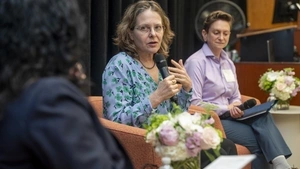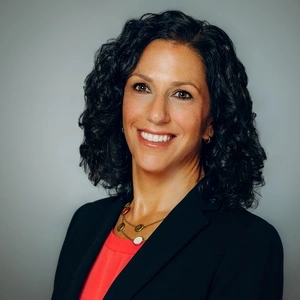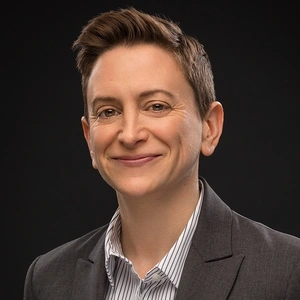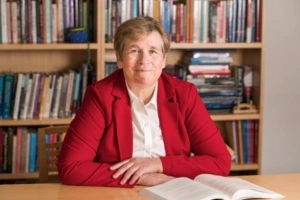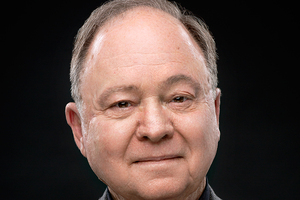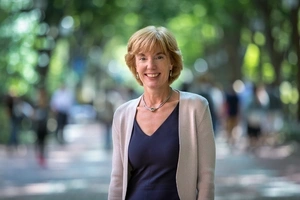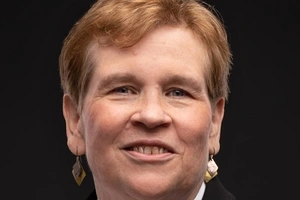Faculty Expert
-
Katharine O. Strunk
Dean, Graduate School of Education
Policy, Organizations, Leadership, and Systems Division -
Sigal Ben-Porath
MRMJJ Presidential Professor
Policy, Organizations, Leadership, and Systems Division
Every year at Alumni Weekend, Penn GSE is honored to welcome back generations of graduates to reconnect with one another and gather for discussion of a critical issue in education. This year, the timely topic for the weekend’s panel was “Discourse and Democracy: The Classroom as a Catalyst for Bridging Differences,” exploring how educators can facilitate open and constructive classroom conversations in polarized times.
On board for the crucial conversation were Dean Katharine Strunk, MRMJJ Professor Sigal Ben-Porath, and Associate Professor Abby Reisman. All three are deeply committed to discourse around difference and education’s place in democratic society. Ben-Porath, who literally wrote the book on free speech on campus, and Reisman, an expert in social studies teacher education, even co-teach a course on classroom discourse. And the dean has made this topic a cornerstone of Together for Good, her strategic vision for the School.
“Cultivating the capacity and the dispositions that are the foundation for a good and productive dialogue, for me, is really the linchpin of the connection between democracy and knowledge—two things we try to cultivate in college,” said Ben-Porath, who is also the faculty director for the SNF Paideia Program, which offers holistic personal, professional, and civic development for undergraduates.
Dean Strunk began the discussion by noting that of all the Penn GSE courses she would like to take herself, Ben-Porath and Reisman’s “Classroom Discourse” one is at the top of her list. Reisman noted that the pair have been talking about the class since they first met 11 years ago, even though they only just finished their second year teaching it.
“There’s an argument to the class, right? And it is that discussion is essential,” said Reisman. “It’s essential for three reasons: We need to be open to multiple perspectives. We need to be able to recognize that our own ideas change. And we need to recognize that knowledge is constructed and changing. And all of that is in the service of democracy.”
The goal of their class isn’t to debate “hot-button issues,” but to explore the idea of discussion from all angles—legal, sociocultural, organizational, preparational—and to develop an appreciation for how complex it is. They use a SAC format (which stands for Structured Academic Controversy), which, Reisman warned “looks like a debate, smells like a debate, and sounds like a debate but isn’t one because the ultimate goal of a debate is winning.” The SAC, instead, emphasizes the importance of listening. Part of the structure, Reisman said, requires one side to repeat the other side’s words back to them.
“The point is not persuasion,” said Ben-Porath. “The point is not to get somebody to change their mind. It’s an effort to experience the opposite argument as not stupid, not worthless, not immoral.”
The three panelists all agreed that, even in the current divided moment, people seem eager for the space to have these types of dialogues—especially on campuses.
“Hunger for opportunities to engage deeply with others across various lines of difference is present in the undergraduate population,” said Ben-Porath, as well as across Penn’s graduate schools.
Reisman encouraged educators wary of controversy in their classrooms to plan for dialogues by thoughtfully crafting the questions that start them.
“Often, I think people plan for discussion by identifying a topic for discussion—but that’s just the first step,” she said. “I want teachers to think really carefully about how they are framing the question to be discussed.”
She suggested three criteria for such planning: Is this topic discussed in good faith in the public sphere? Can discussing it further illuminate the topic for people? And does the phrasing of the question risk harming the dignity or humanity of your students? (The answers, she said, should be yes, yes, and no.)
But even before educators get to designing their questions to spur discussion, Reisman said they need to have done the hard work of establishing norms and the culture of their classroom ahead of time. These should include giving students tools to talk about their feelings and making sure all members feel welcomed, as well as offering opportunities for the class to reflect on the norms.
But, asked the dean, reading a question submitted from an audience member, how do we have respectful dialogue when we can’t even agree on what is true?
“I think about truth and reality, for the purpose of learning, in three layers,” said Ben-Porath. “One is the answer to a certain question. And then the second one is the evidence that we might bring to bear. And the third is, who might we ask or consult if we can’t agree on the previous two? It’s a question of knowledge, it’s a question of evidence, and it’s a question of expertise. And we sometimes collapse the three of them when we have a disagreement, but it’s helpful to start with, which of the levels are we disagreeing about?”
Following the panel, the Alumni Weekend festivities concluded with the Celebration of Educators, a ceremony honoring the seven recipients of this year’s Education Alumni Awards, as well the staff, faculty, and student annual award winners, as decided by Penn GSE students.
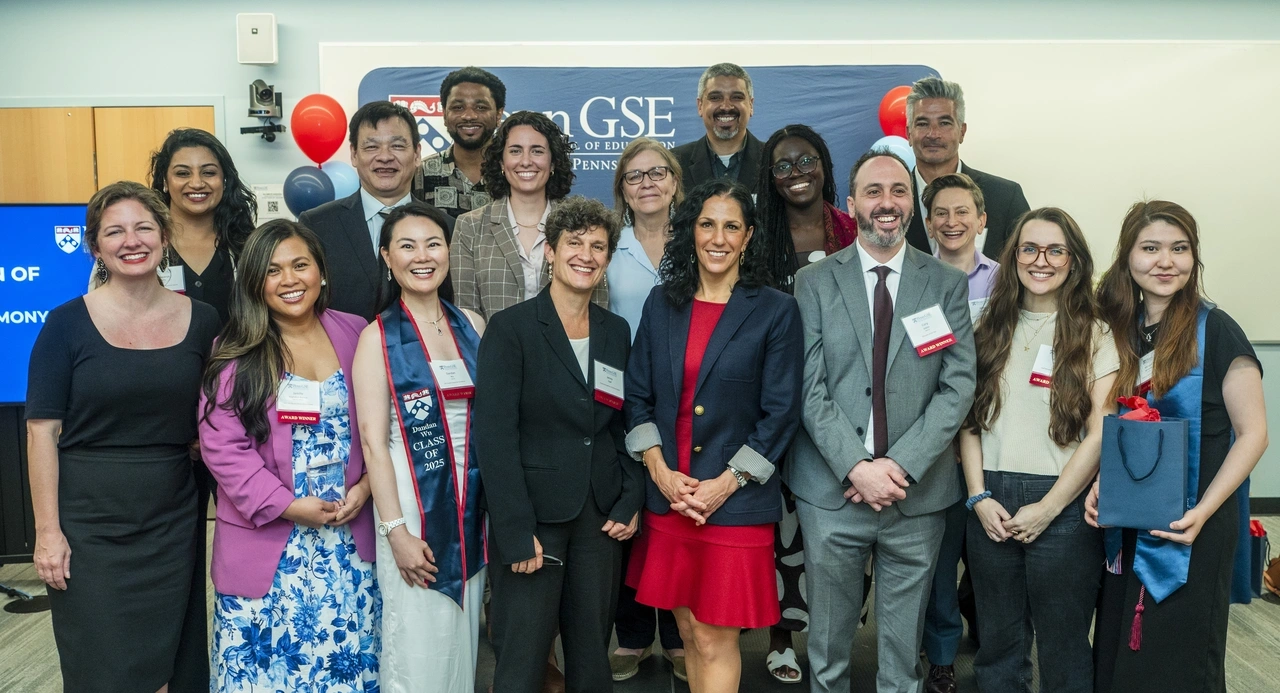
Learn more about these exemplary alumni and community members in the event’s program and enjoy a photo gallery of the festivities here.
Media Inquiries
Penn GSE Communications is here to help reporters connect with the education experts they need.
